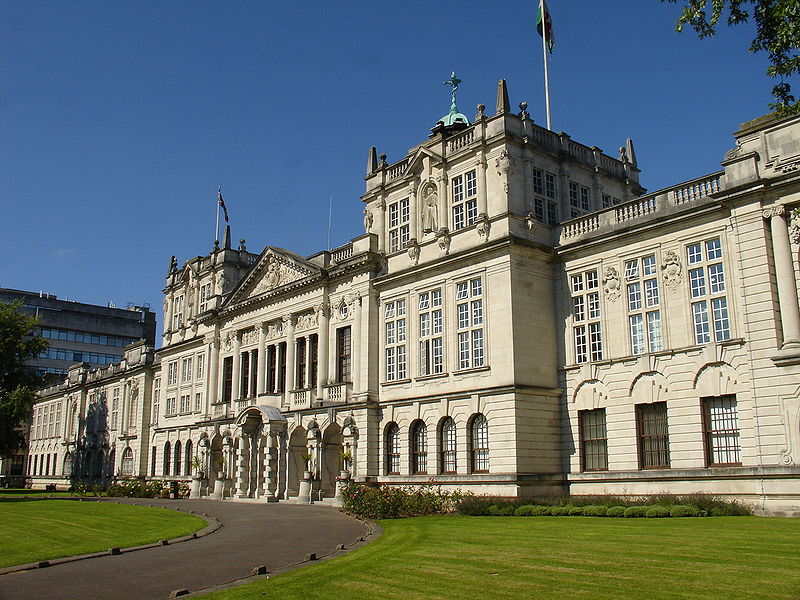As a group of citizens who purchased new Welsh homes in the mid 2000s, we are beset with serious fire and build defects that were discovered following the horrific Grenfell Tragedy.
We have been fighting developers for justice for several years. Housing is a devolved responsibility in Wales, and the cladding crisis has forced many of us to become politically engaged and active as we have been forced to navigate the Welsh political and media ecosphere. It has been an eye-opening experience. This article seeks to share some of the challenges we have faced and continue to face.
Given the scale of complex social and economic issues facing Wales, the fire cladding crisis is probably at the lower end of need, which makes our experiences even more concerning for a developing and aspiring nation.
Conscious that we are battling very rich and powerful developer groups, we recognised early on that media coverage would be a critical part of our campaigning efforts. As well as the obvious 24/7 mental and financial stress the crisis creates, the scandal has raised serious public safety policy questions involving the failure of governance and inspection involving building and home fire safety. During a leaseholder Zoom meeting, Stephen Doughty MP described the situation as a ‘massive systemic failure’.
Our first mistake was to assume that the deeper issues involving the scandal would be of interest to the Welsh media. We have been constantly putting the following question to important elements of the Welsh media: How did the cladding crisis happen in the first place? Indeed, there have clearly been huge failures in local building planning and inspection regimes, with builders being allowed to sign off serious work defects (lack of internal fire stopping) that were clearly illegal at the time. Yet, five years on since Grenfell, there has been no media investigation into the role of Welsh local authorities and planning departments in the crisis. Indeed, we are still aghast at the statement made by Cardiff Council that they don’t have any detailed building records from 2007 and that documents involving huge developments in our capital city were not stored digitally.
Given the Grenfell Tragedy and the public safety concerns involved we assumed that the Welsh media would devote a significant amount of time in reporting the cladding crisis. Even when accepting the smaller scale of the Welsh media its coverage cannot in any way compare to that of England. BBC UK and ITV News have done a superb job of highlighting the issues and holding the UK Government and ministers to account (News at Six, News at Ten, Newsnight and Panorama have all devoted significant time to the issues). In some situations we have had to revert to approaching trainee journalists at the Cardiff School of Journalism, Media & Culture (JOMEC) to report our story in their student newspaper, The Cardiffian. On other occasions we have reached outside Wales to people like Martina Lees at The Sunday Times who has been a major reporter on the crisis.
As the cladding crisis has dragged on, the role of BBC Wales, as the biggest and best resourced media outlet in Wales has been sharply highlighted. It is frequently reported that the outlet is the primary source for news for the majority of Welsh citizens. Whilst BBC Wales has broadcast some good quality yet isolated items on the crisis its analysis has lacked depth and it has clearly failed to address major political policy issues or track the fast changing crisis in comparison to English media outlets.
Such were our concerns early on over the lack of Welsh media interest and coverage of the cladding crisis we wrote to key members of the Senedd and asked them to lobby BBC Wales about the lack of coverage. This did eventually provoke a response from the head of BBC Wales News Garmon Rhys, and a one hour telephone conversation followed in early 2021 – but despite our reasoned requests the lack of coverage did not change significantly.
Since becoming engaged in the crisis, we have become acutely aware of how poor the Welsh media is in scrutinising both corporate interests and the Welsh Government. Even when accepting the differences in scale and resources, the contrast with the UK media and Westminster government is like night and day. We now see this deficiency in other important campaign groups involving the Welsh Covid Inquiry and the new Velindre Cancer Centre development. Too often media reports don’t probe on important policy details and Ministers are either not held to account, or are simply unavailable to answer questions. Given the small and enclosed world of the Senedd and Cardiff Bay media, it always amazes us as to how rare an in-depth Welsh ministerial TV interview is.
This failure to report our story was compounded by a significant failure to highlight major differences in approach between an ‘“in-power’ Welsh Labour Government and the UK Labour opposition who were vehemently critical of the Conservative UK Government’s approach. This was followed by a failure to highlight differences between governments on the funding of remediation works. The net result is that the UK Government remains far ahead of the Welsh Government in getting to grips with the cladding crisis. In March of this year Michael Gove introduced a new game changing Building Safety Act (BSA) Almost overnight it brought obdurate developers to the table for fear of strong and punitive UK government action. By no means the perfect solution, the new law shifted the entire crisis towards a solution. Currently, the Welsh Government has no timetable for enacting the English BSA protections in Wales because they don’t consider it comprehensive enough. However, Welsh victims like ourselves are crying out for the legal powers contained in the new legislation.
Robust debate and agenda-setting research.
Support Wales’ leading independent think tank.
It was also astonishing that there was no political coverage of the 14 Conservative Westminster MPs in Wales consistently voting against protecting the interests of Welsh victims. While we did get eloquent and impassioned support in the Senedd from across the political spectrum, with representatives such as Mick Antoniw, David Melding, Leanne Wood and Neil McEvoy all speaking out on the issue, the lack of media interest was such that we had to record and post their efforts on our own Twitter and Facebook accounts. The media has also failed to report that we are continually caught up in a ‘devolution squabble’ involving legal powers and ‘consequential’ funding arrangements on building safety between Cardiff and Westminster. This is part of what appears to be an even bigger ongoing political dispute over the future of Welsh Government powers.
There has also been a marked absence of reporting on the connections between massive housing developments taking place across South Wales and the role of the same developers who built and sold fire defective homes. Major developers such as Redrow, Taylor Wimpey and Bellway Homes have large numbers of homes that are known to have serious fire defects. It remains a source of anger among victims that these same developers are benefitting from Welsh Government and Cardiff Council support involving the huge new housing development at Plasdwr, West Cardiff. The fact that for years developers denied any legal or moral responsibility and have failed to fully remediate hundreds their fire defective homes, has left many innocent homeowners enraged.
The cost in terms of mental health and wellbeing has been considerable. Many lives are on hold. Homes cannot be bought or sold without massive losses being incurred. Young couples cannot start families. Long planned personal pension plans are in turmoil. In some instances people have had to rent out their homes so as to move job or start a new life.
One major builder, Laing O’Rourke (whose parent company is Suffolk Partners Corporation – a British Virgin Islands off-shore registered company) was in the last few years paid £360m by the Welsh Government to build the new Grange University Hospital in Cwmbran. In 2006/7 Laing O’Rourke built the fire defective Cardiff Bay Redrow development that also included an adjoining social housing development. Whilst the Welsh Government recently helped fund the removal and replacement of wooden cladding from the social housing development to the tune of £1.75m, Laing O’Rourke has yet to engage in any discussions with the Welsh Government on the repair of the 457 Cardiff Bay fire defective properties built at the same time. This astonishing fact has still to be reported in the Welsh media.
To the constant frustration of hundreds of victims, no Welsh government minister has yet called out and shamed any developer or builder involved in the Welsh cladding crisis. Indeed developers such as Redrow continue to be given planning permissions and benefit from government backed “Help to Buy” schemes.
Despite these issues, there has also been some effective Welsh media coverage of the crisis, even if it has been sporadic. In most cases the key focus of interest has been the human element. Our experiences have taught us to understand the journalist’s mantra – ‘if it bleeds, it leads.’ This entails an obsession with the distress of the individual, at the exclusion of exploring the deeper and complex causes of the crisis or their possible resolution. We understand this need to “capture the eyeballs” in a digital work, but fail to comprehend the lack of interest in the wider business and political issues. Despite campaigning throughout the 2021 Welsh election, we never heard one fire cladding question being put to any political party leader. Given the public safety interest it really does not augur well for other interest groups in Wales or the transparency of our political process, particularly when we face enormous challenges with the NHS, child poverty, education and the economy.
When we have engaged with some journalists, we have often been met with a reluctance to engage in the complexity of the crisis. We recognise the issues are complex but reporters’ understanding and knowledge has been poor with little real desire to understand our plight. The fact that at one stage we were advised to draft A4 press releases to help time-poor and harassed jobbing reporters seemed a long way from our idealistic view of the dedicated, Times Insight and Granada World in Action investigative reporter. For those of a certain age, it is an industry that has certainly moved on, and not for the better it would seem. Clickbait is very much the order of the day!
We have also come to understand that despite the explosion in social media, political and digital literacy in Wales are real challenges. We have grown our Twitter feed from zero to 1090 followers – not significant in Twitter terms but reasonable for a small protest group. However, many of our followers come from English cladding groups and it has proved incredibly hard to try and galvanise many Welsh victims & supporters on social media. Our campaigning has brought us into contact with other protest groups looking to influence the political debate in Wales. We have come to understand that they are also facing similar difficulties in getting their voices and story told.
People protesting for a separate Welsh Covid Inquiry – to challenge the controversial WG’s decision to develop a new Velindre Cancer Centre – to save the iconic Cardiff Maindy Stadium from demolition and to prevent the destruction of the Cardiff Northern Meadows are just some of the groups we have come across who face similar frustrations in getting their story told. It’s clear we all face a sense of both political and media isolation and disenfranchisement. As a small but reasonably organised group it’s a concern that there must be many other protest groups who lack the capacity to mobilise and subsequently have no voice at all in Wales particularly when they face far bigger challenges.
Our experiences over the last three years has highlighted to us that there are serious deficiencies within the current Welsh media and in particular how it holds business leaders and our politicians to account. We are left with the impression of a media and political ecosphere that is too narrow and closed when it comes to speaking truth to power. That does not like or welcome challenging or difficult questions. That seems reluctant to hold people to account and switch the light on.
Our crisis is a prime example of major corporate interests and the Welsh Government not being scrutinised either within the Senedd or by the mainstream Welsh media. We have reluctantly come to accept that the failure of the media to hold power to account is deemed perfectly acceptable within the village that is Cardiff Bay. Having largely had one party in power and governance for 23 years, this cannot be a good thing for the future development, prosperity and democracy of Wales. Something urgently needs to change.
Postscript – Since drafting this article several weeks ago, the Welsh Government issued a statement on 7 October on the crisis setting out a process for remediating fire defective homes in Wales. Minister Julie James’ announcement heralded the signing of a ‘pact’ with several leading developers. Significantly, the statement stopped short of announcing any legal powers to force developers to undertake the works. In England, victims of the crisis can call upon legal protections enshrined in the new Building Safety Act of April 2022. No such protections exist or are currently planned for Welsh victims.
Following a major meeting in Swansea on the 12 October, with representatives from many developments across South Wales, the Welsh Cladiators issued a detailed five-page response to the Welsh Government Statement. The statement was widely circulated to key members of the mainstream media in Wales. So far there has been no publication or commentary on the victims’ statement. At the meeting on the 12 October some long-suffering homeowners depressingly suggested that perhaps only deaths would result in a strong, persistent and forensic Welsh news coverage of the scandal.
All articles published on the welsh agenda are subject to IWA’s disclaimer.





